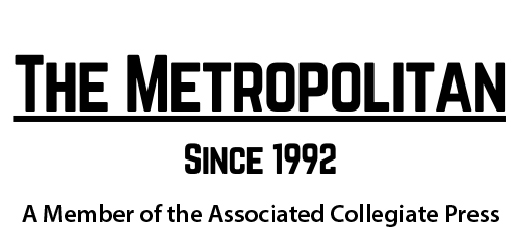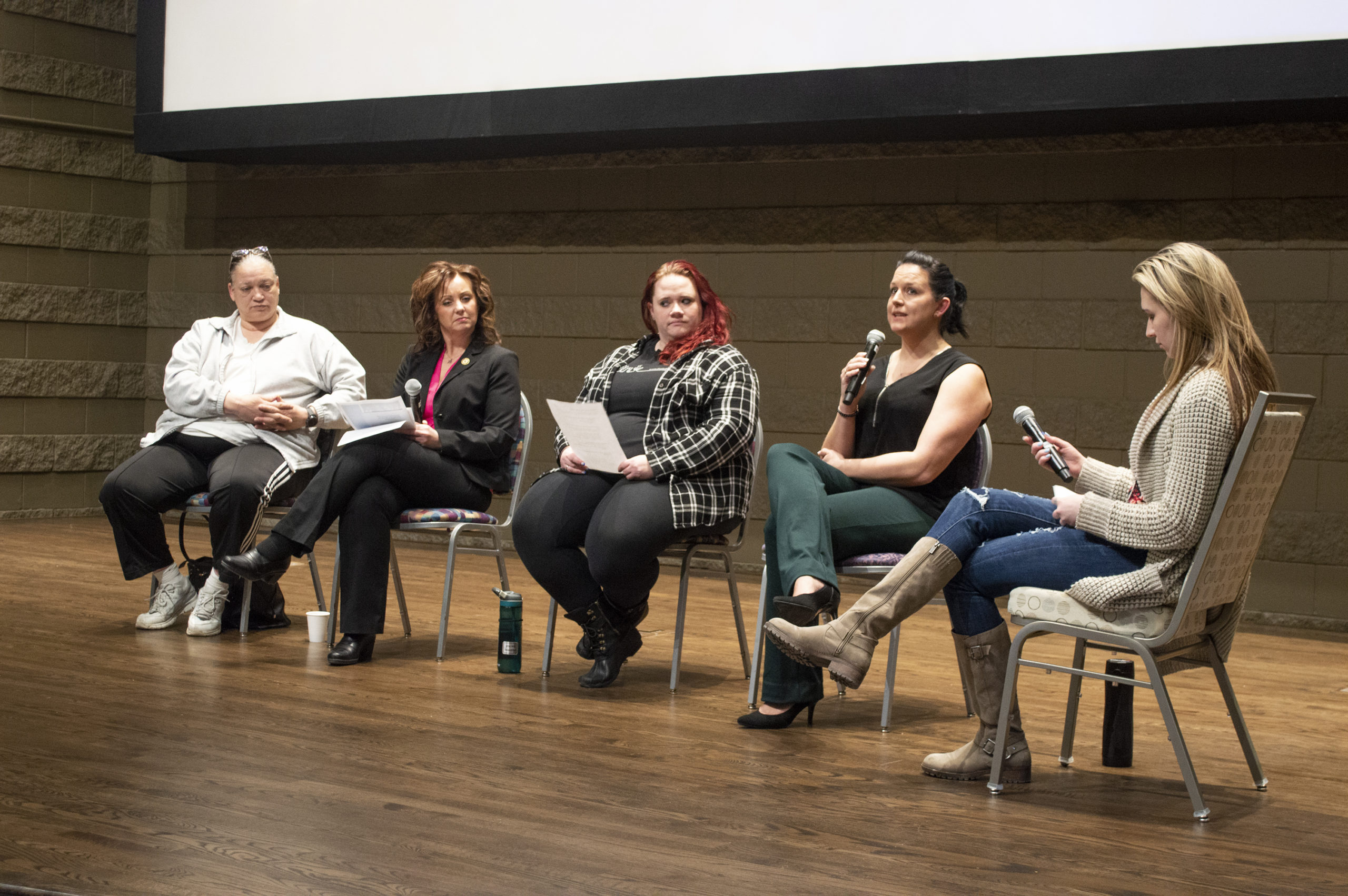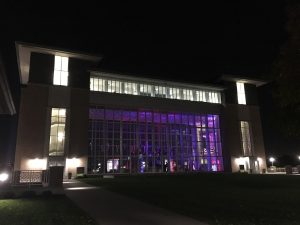Mandy Hathaway
Share:
Human trafficking is a common phrase these days. While the words have become mainstream, an understanding of what human trafficking means, how it affects individuals directly involved and society at large, and what to do if you see something suspicious remain less straightforward.
On the evening of Jan. 29, 2020, Metropolitan State University hosted an event titled Stolen People Stolen Dreams in the New Main building and in the St John’s Hall Auditorium. The event featured resources and speakers who all share the goal of educating the public and aiding those who are in need of supportive services.
The event was hosted by the Human Services Student Organization, in partnership with the Alcohol and Drug Counseling Student Association, the Nursing Student Organization, the Pre-Health Student Organization, the Psychology Club and the Social Work Student Association.
A two-hour panel discussion and Q&A session sought to shed light on a problem that is often relegated to the shadows. Panelists included: Joy Friedman of the Minnesota Indian Women’s Resource Center; Bobbi Jo Pazdernik, Senior Special Agent (SSA) with the Minnesota Bureau of Criminal Apprehension; Stacy Schultz, the West Metro Regional Navigator for The Link; and Linsey Ruth Founder and Director of Project 8.
The evening was an emotional event, especially for those in the audience and on the panel who have survived trafficking situations. Many of the speakers shared their own personal stories and they presented compelling information and tips that all Metro State students should be aware of.
To highlight the vulnerability of those in our communities, the speakers shared the findings of a newly released 2019 survey of Minnesota high school students, that found that at least 5000 students self-reported that they have traded sex for food, shelter, money, drugs, alcohol or something else.
What may surprise some is that that male and female cis gender high school students traded sex about equally at 1.2% and 1.3% respectively. Transgender students were more than four times as likely to have done so, with 5.9% admitting to trading sex.
One of the main points that speakers worked to get across is that sex trafficking can happen to anyone. While images in the media tend to portray sensationalized images of kidnapping victims snatched off the street and kept in chains, “In reality our victims are controlled by fear, and manipulation and violence … or their trafficker gets them to fall in love with them; we call them a Romeo trafficker,” said Pazdernik.
As for the students who admitted on the survey to trading sex for drugs or alcohol, addictions are a common tool used to trap individuals in these types of situations. “Trapped” doesn’t have to mean living in a literal cage; most people live normal daily lives, but an abusive partner, pimp, dealer or “friend” demands they regularly trade access to their bodies for access to money, drugs, etc.
“It’s about unwanted sex. Just because I took the money doesn’t mean I wanted it. People have a misconception that ‘Oh well she chose, or they chose to do this,’ no, it’s lack of choices. Whether it’s affection, being noticed … the bills, or someone waiting for me.” – Joy Friedman of the Minnesota Indian Women’s Resource Center
Poverty, romance, addiction and fear can all lead people into the lifestyle. Whatever the initial reasons, many of those who find themselves trapped there are unaware that they have other options. Instead, they feel guilty, responsible and ashamed for the situations in which they find themselves.
Often, they don’t identify as victims, but as broken or bad people with no other choices left to them. Frequently, they remain trapped in their situations because of addiction, violence, shame or mental health issues. They simply don’t see any way out.
Even after leaving that lifestyle behind, survivors often suffer from Post-Traumatic Stress Disorder (PTSD), depression and anxiety. Trauma therapy and other supportive services can make a difference, and there are a variety of resources available in the Twin Cities area to make the transition and healing process easier. As Schultz put it, these resources, along with many others, exist “so that these people can be the heroes of their own story.”
The Link offers services and housing programs for youth and young adults, up to 24 years of age, who are currently in the life. They also engage in street outreach, operate emergency shelters, and offer career and leadership development opportunities.
The Minnesota Indian Women’s Resource Center works with women from any ethnic background. They offer services like supportive housing, life-skills training, addiction counseling, and the use of native spirituality in healing from physical and mental trauma.
Project 8 works with women who have and are leaving the lifestyle. They use sewing and textiles as a healing art and provide graduates with the training and supplies to continue sewing, and perhaps earn a living in a new way after the program is completed.
But what do you do if you see something suspicious or you think that you know someone who is being trafficked? Pazdernik offered some tips on what to do if you see someone you suspect needs help. Never approach the person, especially if they appear to have someone with them or nearby monitoring them and their behavior. Do not give their supervisors any reason to harm you or the person you are seeking to help.
“Call 911, call the Human Trafficking hotline, because there is nothing you are going to be able to do to save that person. It is not going to take you to get them out, it is going to take that person. We had to make that choice, because our mindset had to change before we were able to leave.”- Linsey Ruth
Document license plate numbers, car types, physical descriptions and any other info you think might be useful. If it is safe to do so, take photos or videos. Being discrete, acting as if you are texting or taking a selfie, may help you to remain unnoticed. Do not put yourself, the person you want to help, or other members of the public in danger by attempting to get directly involved; keep your distance.
Contact 911 if you need an immediate response and keep the phone number for Minnesota’s 24-hour Human Trafficking task force 651-793-7000 in your phone. Contact them right away with any details and photos you have collected. You may also use this phone number if you think you, or someone you know, may need help related to sex trafficking.
Minnesota’s Safe Harbor laws decriminalize prostitution for those under 18 years old. These laws are designed to make sure that any minor who has engaged in trading or selling sex receives full support and services from the state in order to ensure recovery and healing.
Talk to your children and warn them about the danger of being recruited. Pazdernik says social media is the most common place young people are recruited. Friedman stressed that traffickers generally don’t approach children or young people. In a physical setting, traffickers have young people or women already working for them do the recruiting. “You will talk to someone who looks like you,” she said. In your day to day life, the speakers stressed, create an environment where sexual power is not used to victimize. Speak up when your friends or strangers around you make jokes about rape or sexual violence, or when they use sexuality to make others uncomfortable. Decline to pay for sex; without demand there would be no market. Avoid any media that celebrates nonconsensual sexual domination and encourage others to do the same. By following the few simple tips mentioned, these advocates stressed that we can create a society that values the safety of all its members.
Again, if you see something, or think you or someone you know might need help, please contact the Minnesota Human Trafficking Task Force 24-hour hotline at 651-793-7000 or call 911. For more information, visit their website HERE.




